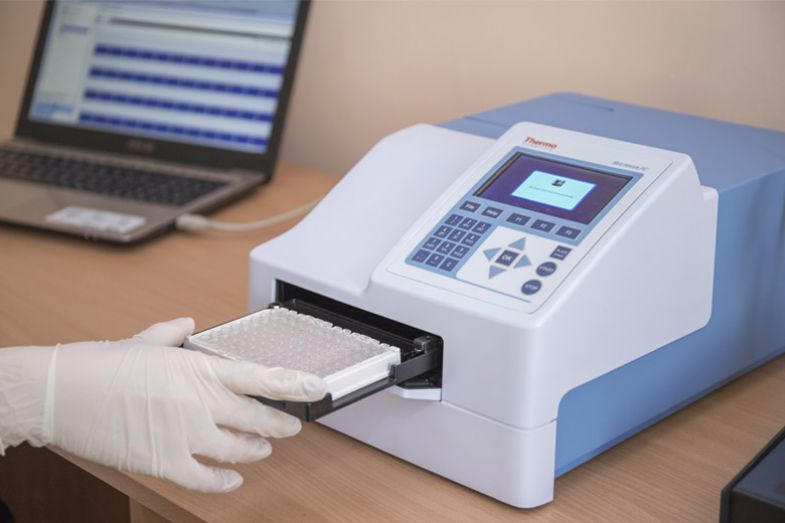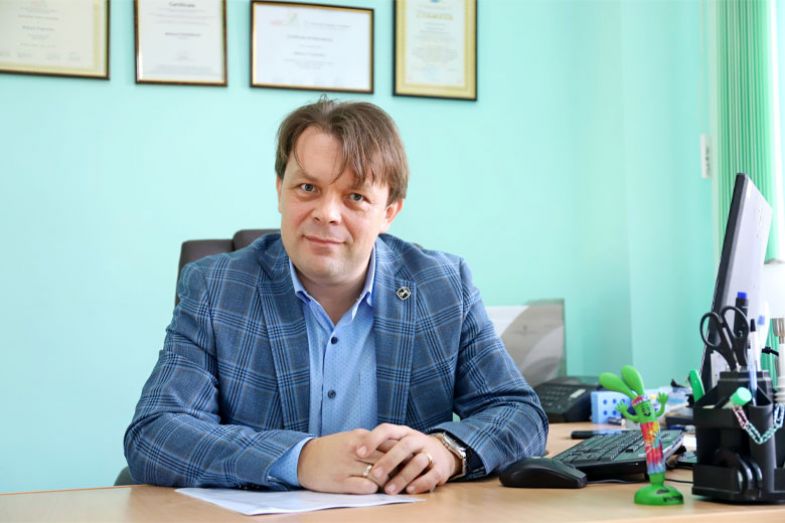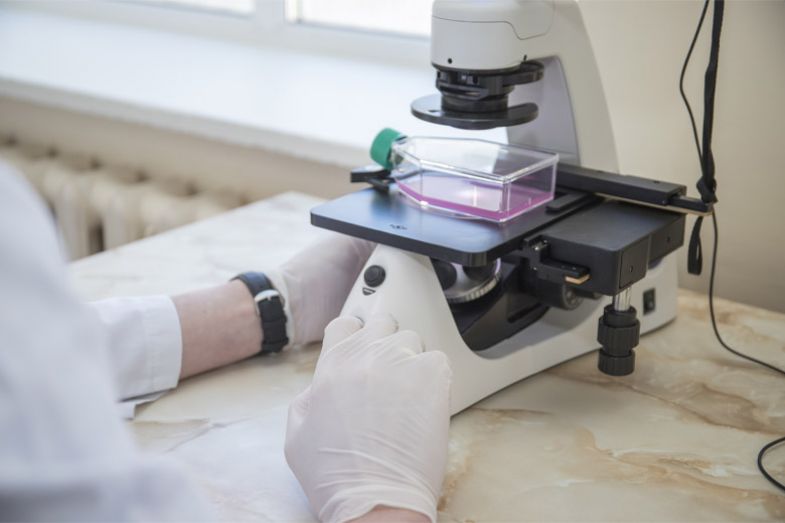Biomaterials are artificial or natural materials used to replace or restore function to body tissue and are continuously or intermittently in contact with body fluids. Dental and orthopaedic implants, vascular grafts and skin patches are the most well-known materials in everyday life. Some materials are just raising at the medical market, such as tissue-engineering construction, nanoparticles, tissue substitutes, etc. The global biomaterials market is estimated to reach $139 Billion by 2022, growing at a CAGR of 11.8% from 2016 to 2022 and required intensive research.
Sumy State University is at the frontier of biomaterials research in Ukraine and provides a full circle of investigation from development to pre-clinical trials.
Professor Maksym Pogorielov and his group realised numerous projects focused on tissue engineering materials, dental implants, hemostatic sponges, antibacterial nanoparticles and cancer photo-thermal treatment. Biomaterials Research Center, led by Prof. Pogorielov, comprises cell chemical synthesis facilities, cell culture, bacteriology and ELISA laboratories and utilised animal facilities for pre-clinical investigation.
Development and assessment of new functional surface for dental and orthopaedics implants is the main focus in the research group of Maksym Pogorielov. This project realised in cooperation with leading Universities and Industries from Latvia, UK, Italy, and the Czech Republic under the financial support of Horizon-2020 MSCA-RISE grant NanoSurf. The project NanoSurf aims to strengthen international and intersectoral collaboration in dental implant research, sharing new ideas and knowledge transfer from research to market. Interdisciplinary project research and innovation goals are targeted to develop a new class of dental implants with advanced mechanical properties and improved surfaces, treated with nanotechnological methods that demonstrate high biocompatibility, antibacterial properties and integration with a patient's bone. The developed devices will simplify dental surgery and avoid bacterial inflammatory complications after implant surgery. This can provide better dental services and improve healthcare for EU society. Maksym Pogorielov says: "New technology can dramatically improve implantable devices and significantly decrease complications rate. It makes people healthier and much happier". First dental implants with new biocompatible coating certified in Poland market in 2020 and available for clinical application.

Another project that is being realised in Biomedical Research Center is developing porous nanostructured sponges and aerogels for tissue engineering and regenerative medicine. Using state of the art chemical synthesis, electrospinning device and vacuum chambers, they developed new skin patches, hemostatic materials and dura matter substitutes. The porous nanofibrous structure allows introducing cells, harvested from the patient, to new materials and significantly improve the healing process. "Tissue engineering is a new era in surgery that able to "growth" new tissues and organs for patients, and we are happy that can provide our input at this area" - Maksym Pogorielov said. This project was implemented with the support of Ukrainian Governmental Project in tight collaboration with leading universities from the UK, Italy and Germany. Electrospinning techniques used for new materials development provided by leading EU companies in this area – Linari Engineering-support and advise all steps in material synthesis.
Biomaterials Research Center have broad cooperation within the EU Universities and Research Centers, e.g. University of Sheffield (UK), Latvia University (Latvia), Vilnius University (Lithuania), Montpellier University (France), Adam Mickiewicz University (Poland), Istituto Italiano di Tecnologia (Italy). Interdisciplinary cooperation will able to be involved in a state of the art research with leading groups in material science, bioengineering, nanomaterials, etc. and stay at the frontier of biomaterial development. Additionally, cooperation with biotech companies - Linari Engineering (Italy), NanoParma (Czech Republic), NanoPure (Poland), BioSensor Srl. (Italy) will able to move new biomedical technologies to market and provide a significant influence on social development.

The main advantage of international cooperation is the involvement of undergraduate and PhD student in research and provide them access to modern facilities and state of the art technology. Many students visited partner academia and SME and engaged in biomaterials development and investigation. "It makes them more competitive in the job market and in future we can make this world better" - Prof. Maksym Pogorielov said.
Prof. Maksym Pogorielov was recognized as an Emerging Biotech Leader by the US-Ukraine Foundation

